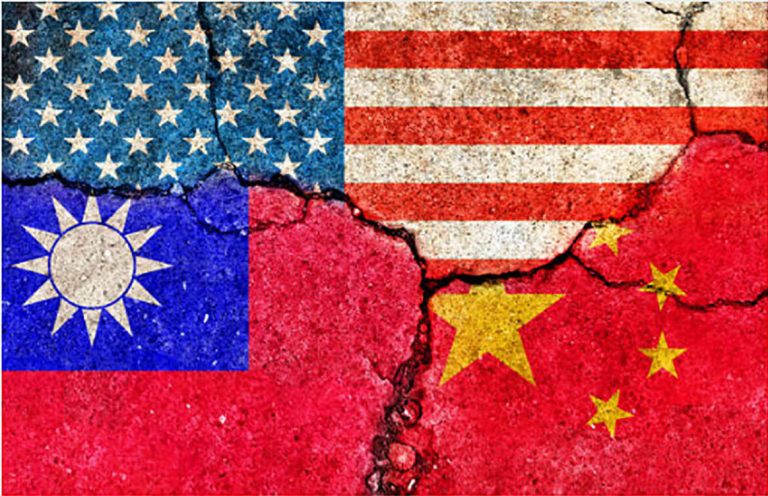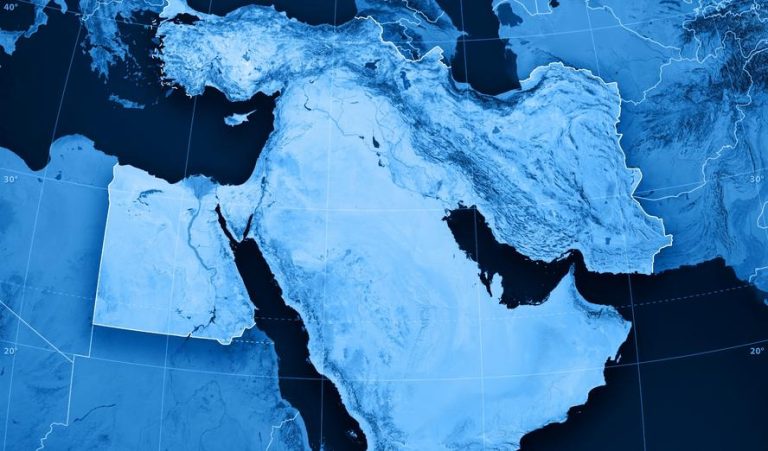China-Taiwan-USA Triangle Holds the Key to War and Peace in Eastern Asia
Tensions between Beijing and Taipei have escalated in recent times to the point that they could provoke a serious conventional, and some analysts believe even nuclear, war between the United States and the People’s Republic of China. The Cold War between Washington and Beijing, although Washington denies it, and Beijing is urging the rest of the world not to accept the logic of the Cold War, for which the ball is being transferred to Washington, has already begun and is felt in almost all strategically important regions. two superpowers collide. How is it at all possible that the question of Greater China’s relationship with a small island of 36,000 square kilometers off the coast of China could be the cause of an apocalyptic conflict such as the China-US war over Taiwan would surely be if it happened. The genesis of the China-Taiwan conflict is more than a century old. Although largely unrecognized by other countries as a state, Taiwan sees itself as an independent nation and its political leaders have vowed to defend Taiwan’s sovereignty from Chinese intentions to annex Taiwan to China, by grace or force. Taiwan, whose official name is the Republic of China (ROC) when it comes to defending against possible Chinese aggression from the United States, expects to protect it. Therefore, any increase in tensions between China and Taiwan causes additional mistrust and animosity and adds fuel to the fire of already strained relations between Washington and Beijing. Taiwan, called Formosa (beauty) by the Portuguese colonizers, is a small island located off the east coast of China. Seventy years ago, Chinese nationalists and anti-communists from the former Republican government withdrew from China to Taiwan after the 1949 Communist victory in the revolution and civil war that followed. Since then, Taiwan has continued to exist in international relations as the Republic of China (RoC). Taiwan is located in the East China Sea, northeast of Hong Kong, north of the Philippines and south of South Korea, and southwest of Japan. Therefore, its position is of special strategic importance because it is located between the Pacific and Southeast Asia. Therefore, the Taiwan issue has serious implications for global relations and concerns the whole of East Asia. After parts of Manchurian units revolted, resulting in the overthrow of the Chinese monarchy ruled by the Qing dynasty, 4,000 years of Chinese monarchist rule ended, and on December 29, 1911, the Republic of China was proclaimed. Its founder is considered to be dr. Sun Yat Sen, founder of the Kuomintang Political Party (KMT). At the head of the ruling party KMT, and the After parts of Manchurian units revolted, resulting in the overthrow of the Chinese monarchy ruled by the Qing dynasty, 4,000 years of Chinese monarchist rule ended, and on December 29, 1911, the Republic of China was proclaimed. Its founder is considered to be dr. Sun Yat Sen, founder of the Kuomintang Political Party (KMT). At the head of the ruling party KMT, and the new republic. Suna was later succeeded by General Chiang Kai-Shek, a well-known military leader who fought against Chinese communists who had previously, at the insistence of the Soviet Union, allied with the KMT in a joint fight against the occupying forces of the Japanese Imperial Army. It was a great civil war on the territory of today’s China, which ended with the triumphant victory of the communists. After suffering defeat, Chiang and his KMT supporters fled to Taiwan where they established their base, established control of the island after clashes with the domicile population, and established a state government in exile whose name is still the Republic of China. On the other hand, since its proclamation in 1949, the People’s Republic of China, led by the Communist Party of China, has insisted that must return to China and seeks to reunite Taiwan with the mainland. The Republic of China – Taiwan, on the other hand, is considered the legitimate government of China. During the first two decades, Taiwan gained a halo of non-communist borders and dams towards China in the context of the Cold War policy. Taiwan (RoC) at the time was the only ‘China’ recognized by the UN as a legitimate member of this world organization until 1971. After China bombed Taiwan-controlled Yinmen, Mazu and Dachen in 1954-55, the US Congress passed a Resolution on Formosa authorizing President Eisenhower to defend the territory of Taiwan (Republic of China). Chinese Prime Minister Zhou En-lai signaled at a non-aligned conference in Bandung, Indonesia, that he wanted to negotiate with the United States, but in 1958, China continued the bombing, provoking the United States to increase support for Taiwan. The animosity between the United States and China over Taiwan lasted until 1971, when there was a serious turning point in the history of American foreign policy relations with China. However, as part of a policy of reprisals or detente between the US and China in order to counter the global threat and influence of the Soviet Union, relations between Washington and Beijing are warming up. Initially, the process took place in secret, and the main bearer of the rapprochement between the United States and the People’s Republic of China was Henry Kissinger, who at the time was a national security adviser in the Richard Nixon administration and later secretary of state. In 1979, the United States decided to recognize China, which received a seat and chair as a permanent member of the UN Security Council. Despite recognizing China as an insurance policy, we would say, the United States continues to support Taiwan as a separate political entity and maintains ties with Taipei by supplying its government with weapons, although Washington has pledged to accept One China Policy, a concession to Beijing. Washington had to pay for China’s consent to act globally as an American partner in the containment of the Soviet Union. This treaty, which obliges Washington to agree to the existence of only one legitimate Chinese government, was in force until recently, when Washington, although
China-Taiwan-USA Triangle Holds the Key to War and Peace in Eastern Asia Read Post »


